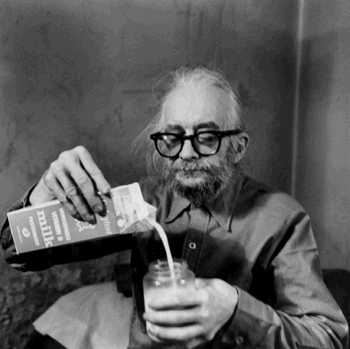Does Rick Deckard benefit or suffer from his commitment to his profession in Do Androids Dream of Electric Sheep? Use evidence to support your argument.
Rick Deckard's career plays an integral part in his life, especially on the particular day that the novel Do Androids Dream of Electric Sheep? takes place. As a bounty hunter, Rick has the opportunity to move up the social ladder and secure some mental stability within the course of the day. His quest for the American dream leads him on a difficult path, and audiences are left wondering whether he would have been better off declining to do the task his boss had assigned him. Rick Deckard's commitment to his career and a lifestyle centered around capital, damaged him physically, but improved him emotionally, which is more significant in the context of the novel.
Physically whole, and brimming with the confidence and ambition of a healthy, normal man, Rick Deckard was ready to take on any task in order to achieve a greater social status. Deckard was so obsessed with this goal that he was willing to chance almost certain death to achieve it. Despite finally accomplishing his set goal, and earning 8,000 credits, Rick Deckard finishes his day in a worse physical state than he had started it. With regard to his body, he cuts his ear, becomes exhausted to the point of malfunction, and suffers a blow to the groin which could potentially ruin all hopes he had for procreating (pages 179, 231, 243). In many ways, Rick Deckard lost his manhood as he was toyed with and controlled by a femme fatale android, and possibly becames sterile by the book's end (pages 202, 231). In addition to the significant damage to his physical frame, he also takes on vast economic losses. Rick Deckard buys a goat on credit, in order to assert his social standing (page 169). Not only does he spend his total earnings of the day on a class symbol, but he also amasses a huge amount of debt (page 170). Before the day ends, the goat is brutally and vengefully killed, which leaves Rick in severe debt with nothing to show for it (page 226). While Rick starts the day with one electric animal, and ends the day with two, they both represent something that is reprehensible to society and adverse to Rick's initial aspirations. A capitalistic or a positivist might look at this situation and say that Rick fell prey to hubris, leaving him worse for the wear by the novel's end. Other aspects of Rick's life, however, seem to improve through these worsening of conditions, which merit careful examination.
Material wealth dominated Rick Deckard's whole mindset, and defined what it meant to be successful in life. If he retained this weltanschauung, undoubtedly scholars would say that Rick turned out to be a failure by the end of the novel. Even after the exhaustion, an identity crisis, and a moral reevaluation of his life he still seems contented as the novel concludes. In fact, a case could be made that he is more contented when he returns home than when he left it the morning earlier. Before he went to work at the beginning of Do Androids Dream of Electric Sheep? he felt imprisoned in a hopeless, loveless marriage (page 94). Rick is also discouraged by every facet in his life, his job, his home, his property, and even himself (pages 9, 13). Even after he discovers that his prized toad is fake, he still finds happiness and satisfaction. When, in the last chapter, his wife “kissed him... his face lit up, almost as much as before—before she had shown him that the toad was electric,” (page 242). This represents an astounding transformation, as Rick Deckard can find happiness in his life despite the emotional trauma and economic ruin that befell him, especially when he was dissatisfied with his life in the midst of former stability. He also gains miraculous insight into the ideology of Mercer, as he endures taxing trials and learns the true meaning of empathy through his journey (pages 174, 231). The fact that he can feel fulfilled in these circumstances leaves him richer by the end of the novel than at the beginning.
While Rick Deckard suffers supreme physical and material loses through the course of the novel, he develops a more mature understanding of himself and the world that allows him to appreciate his own reality. Ultimately, the change from discontent to newfound gratitude outweighs any financial or corporeal loss Rick Deckard sustained.

No comments:
Post a Comment